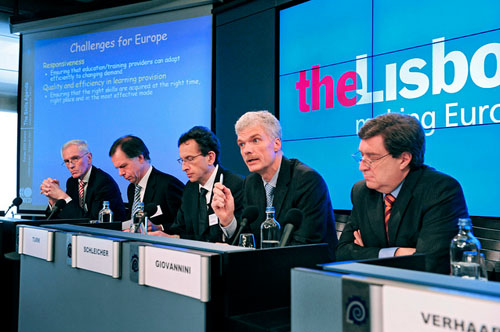
According to Andreas Schleicher of OECD, the United States is unique among countries in that the generation of workers entering the US workforce does not have higher college attainment levels than the generation about to leave the workforce. He further believes a key strategy to addressing this problem is improving equitable access to education across the board and that good examples of how to achieve this can be found in other education systems such as Finland, Kanada, Japan or Korea. None of this sounds particularly new, but I wondered if Andreas were making the big picture education decisions, how would he address some of our key issues? We recently had the opportunity to discuss this further.
Andreas Schleicher is Special Advisor on Education Policy to OECD’s Secretary-General, and is Deputy Director for Education. Ayrıca becerilerin geliştirilmesi ve kullanımına ilişkin OECD'nin çalışma ve sosyal ve ekonomik sonuçları üzerinde stratejik gözetim sağlar. Bu Uluslararası Öğrenci Değerlendirme Programı için içerir (PISA), Yetişkin Becerileri OECD Anketi (PIAAC), OECD Uluslararası Öğretme ve Öğrenme Araştırması (BÖYLE), ve eğitim sistemlerinin performansına kriterler geliştirilmesi ve analizi (INES).
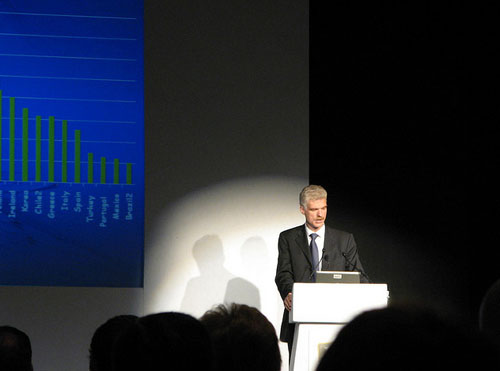
Hükümet üniversiteye okul öncesi eğitim ücretsiz eğitim vermelidir?
Hiçbir ücretsiz eğitim yoktur; someone has to pay. If governments provide free education from pre-school through college, daha nitelikli insanlar sonunda fatura ödeme sonunda böylece onlar dik artan oranlı vergi sistemi ile yedeklemek gerekiyor. Avrupa'da İskandinav ülkeleri bu işe göstermektedir, ve iyi çalışır. The other good option is to ask students to pay tuition and to back that up with a universal student support system that provides an income-contingent loan system complemented with a scheme of means-tested grants. In that way you minimize risks for students, avoid that they end up with huge debt that they cannot pay back, and you provide special assistance to those students who would otherwise be prevented from attending university. The UK shows how this can work. Providing college tuition-free without getting the money back through taxes for the better-educated means that the poor end up subsidizing the education of the rich.
Are you in favor of privatizing public schools?
Results from PISA show no performance advantage of private schools, once you account for social background. Ancak, cross-country analysis of PISA suggests that the prevalence of schools’ tanımlamak ve onların müfredatlarını ve değerlendirmelerini detaylandırmak üzere özerklik okul sistemlerinin performansına olumlu ilgilidir, Hatta milli gelir muhasebesi sonra. Öğrenci değerlendirme politikalarının karar daha fazla takdir okullara sağlayan okul sistemleri, derslerin sundu, ders içeriği ve kullanılan ders kitapları da yüksek seviyelerde performans okul sistemleri. Yani belki de ülkeler için soru onlar değil kaç özel veya charter okullar, but how they enable every public school to assume charter-type responsibility.
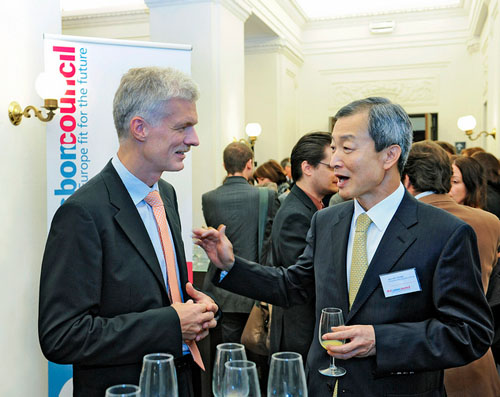
Since every child is probably not meant to pursue a liberal arts education, what would you do to make our children more competitive in the skilled trade jobs market?
Our data show that when employers are involved in designing curricula and delivering education programs at the post-secondary level, students seem to have a smoother transition from education into the labor market. Compared to purely government-designed curricula taught in school-based systems, learning in the workplace offers several advantages: it allows trainees to develop “hard” skills on modern equipment, ve “soft” becerileri, such as teamwork, communication and negotiation, through real-world experience. Hands-on workplace training can also help to motivate disengaged youth to stay in or re-engage with the education system. Workplace training also facilitates recruitment by allowing employers and potential employees to get to know each other, while trainees contribute to the output of the training firm. Workplace learning opportunities are also a direct expression of employers’ ihtiyaçlar, as employers will be ready to offer opportunities in areas where there is a skills shortage.
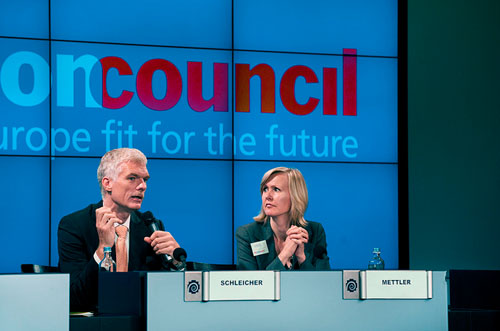
Do you think that the United States needs to do more in the area of early childhood education, ve öyle olsa bile, ne?
One the one hand, the US falls well behind most countries in the industrialized world when it comes to early childhood education, and this is clearly a key lever to raise quality and equity in learning outcomes. Aynı zamanda, the US does really well when you look at student performance in primary education, so-so when it comes to performance in middle school, and not very well when it comes to performance in high school. This suggests that students actually get quite a strong start, but the school system adds less year after year than what children in other countries learn. That is something you don’t address with better early childhood education but with a better school system.
What do you think is the best way to fund our public schools?
The US spends plenty of money on public schools, but our data show three things. Her şeyden önce, a disproportionally high share of that spending does not make it into the classroom. Ikinci olarak, spending is regressive in that schools in disadvantaged areas end up with less resources than schools in socially advantaged areas (in virtually all other industrialized countries it is the other way around). Bu ABD en zorlu sınıflara en yetenekli öğretmenleri çekmek için izin vermez, hangi kamu harcamaları en etkili kılacak. Üçüncü, Yüksek performanslı ülkeler öğretmenlerin kalitesini ve sınıfların büyüklüğü öncelik eğilimindedir. Son on yılda ABD'de eğilim etrafında başka bir yol gitti.

OECD Resimleri nezaket.
Eğitim Küresel Ara, Sir Michael Barber dahil bana katılmak ve dünyaca ünlü düşünce liderleri (İngiltere), Dr. Michael Blok (ABD), Dr. Leon Botstein (ABD), Profesör Clay Christensen (ABD), Dr. Linda Darling-Hammond (ABD), Dr. Madhav Chavan (Hindistan), Profesör Michael Fullan (Kanada), Profesör Howard Gardner (ABD), Profesör Andy Hargreaves (ABD), Profesör Yvonne Hellman (Hollanda), Profesör Kristin Helstad (Norveç), Jean Hendrickson (ABD), Profesör Rose Hipkins (Yeni Zelanda), Profesör Cornelia Hoogland (Kanada), Sayın Jeff Johnson (Kanada), Bayan. Chantal Kaufmann (Belçika), Dr. Eija Kauppinen (Finlandiya), Devlet Bakanı Tapio Kosunen (Finlandiya), Profesör Dominique Lafontaine (Belçika), Profesör Hugh Lauder (İngiltere), Profesör Ben Levin (Kanada), Rab Ken Macdonald (İngiltere), Profesör Barry McGaw (Avustralya), Shiv Nadar (Hindistan), Profesör R. Natarajon (Hindistan), Dr. PAK NG (Singapur), Dr. Denise Pope (ABD), Sridhar Rajagopalan (Hindistan), Dr. Diane Ravitch (ABD), Richard Wilson Riley (ABD), Sir Ken Robinson (İngiltere), Profesör Pasi Sahlberg (Finlandiya), Andreas Schleicher (PISA, OECD), Dr. Anthony Seldon (İngiltere), Dr. David Shaffer (ABD), Dr. Kirsten Sürükleyici Are (Norveç), Başbakan Stephen Spahn (ABD), Yves Theze (Lise Francais ABD), Profesör Charles Ungerleider (Kanada), Profesör Tony Wagner (ABD), Sir David Watson (İngiltere), Profesör Dylan Wiliam (İngiltere), Dr. Mark Wormald (İngiltere), Profesör Theo WUBBELS (Hollanda), Profesör Michael Young (İngiltere), ve Profesör Minxuan Zhang (Çin) Onlar bütün milletler bugün karşı karşıya büyük resmi eğitim soruları keşfetmek gibi. Eğitim Toplum Page Global Arama
C. M. Rubin o aldığı için iki çok okunan çevrimiçi serisinin yazarı 2011 Upton Sinclair ödülü, “Eğitim Global Arama” ve “Nasıl Oku Will?” O da üç çok satan kitapların yazarı, Dahil Harikalar Gerçek Alice.
C izleyin. M. Twitter'da Rubin: www.twitter.com/@cmrubinworld


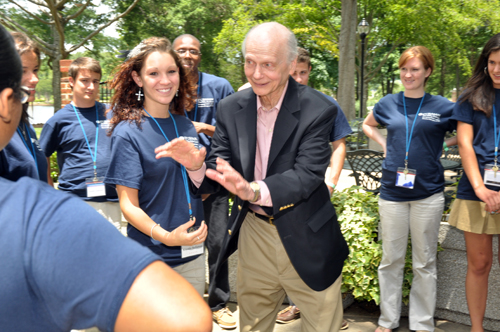


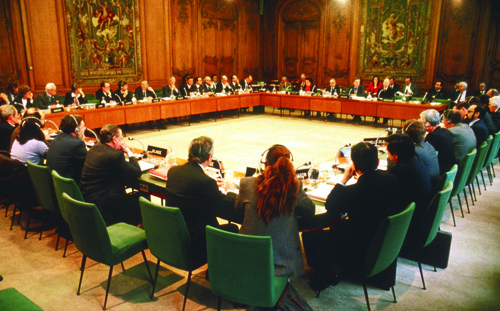
Son Yorumlar